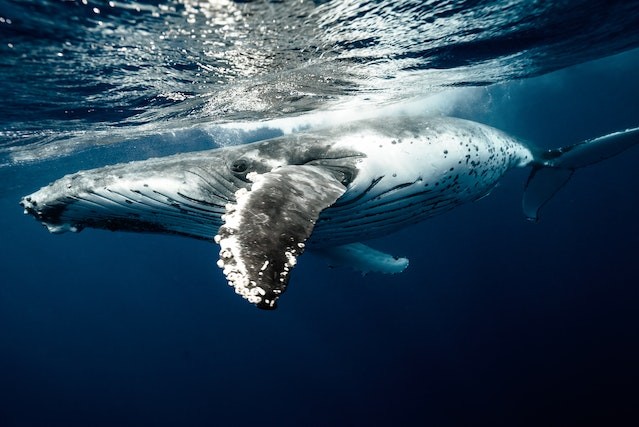
The Loneliest Whale: What Did Happen to the Search for 52?
One whale caught the attention of experts when they heard his unique vocalization. The whale was vocalizing at 52 hertz, prompting whale trackers to call him the "52 Hertz Whale."
52 Hertz - The Loneliest Whale
In 1989, the enigmatic thrum was first heard. An array of monitoring hydrophones that the US Navy had installed during the Cold War to monitor Soviet submarines picked an unusual sound.
At first, they assumed it was mechanical and might even have been an enemy ship. The sound didn't take on the form of a strange whale until four years later, when these signals were revealed to marine scientist William Watkins, per The Guardian.
Scientists believe that the whale was solitary and lives in the North Pacific. They determined that the sea creature is a male and possibly a hybrid between a blue and fin whale, Science American reported.
Pakinam Amert told the outlet that they believed the whale was solitary in broadcasting at a frequency of 50 to 52 Hertz (Hz), which is too low for humans to hear and too high for whales. They ended up calling it "52."
No other aquatic species seemed to respond to or understand the voice that the creature was making. Expert in bioacoustics, Watkins and his coworkers at the Woods Hole Oceanographic Institution monitored and recorded the 52-Hz calls from 1992 to 2004.
And yet, nobody had noticed it. For 12 years, whale 52's auditory signature was the only indication of its existence in the central and eastern North Pacific, where it seemed to appear and vanish every year during the mating season.
Watkins passed away in 2004. He was 78. He died without knowing the full story behind 52. However, a few months later, his work on 52 reappeared in a publication. Posthumous refers to it. The whale was proven to exist and to be traveling the oceans alone by the scientist.
No other whales' cries merged with it to any extent. It spoke to no one in particular when it did so in a mixed tongue like that of blue and fin whales.
The lone creature of the depths quickly attracted even more attention and conjecture. Then it developed into something even greater, becoming a living canvas on which we painted tales tinged with existential loneliness, projected our sufferings, and looked for something more profound.
After that, many began to refer to 52 as "the world's loneliest whale."
ALSO READ: How Big Is a Whale Penis? What Creature Boasts the Longest Phallus in Animal Kingdom?
What Did Happen to 52 Hertz Whale?
The whale left tracks of acoustic data across the Pacific, and scientists have been tracking him for over 30 years. However, they have never found him.
A documentary titled "The Loneliest Whale: The Search for 52," dedicated to finding the solitary sea creature, likened the mission to finding a needle in a haystack.
They have never heard him for years, prompting some scientists to believe that 52 was dead. However, an intern listened to the same sound but in a different spot, convincing experts to think he was still alive and well.
Its last spot was close to the shore off the west coast of the United States in Los Angeles, California. The documentary filmmaker and producer Joshua Zeman said they were concerned because the area is one of the busiest shipping lanes. He wondered if they hadn't heard of the whale because of the "villain," referring to the cargo vessels in the area.
Although the experts haven't found 52, which they called "the loneliest whale," Christopher Clark of Cornell University, one of the world's foremost experts on whale communications, clarified that there was no reason to dub the sea creature as such. His being solitary doesn't guarantee the speculations that he is lonely.
Clark told BBC that all whales, including blue, fin, and humpback whales, can hear 52 because they are not deaf. He noted, however, that 52 is "odd."
Ana Širović, associate professor at Texas A&M University at Galveston, wondered how the other whales perceived 52 and how his bizarre sound appeared to them. She asked if the other whales completely ignored it or understood it slightly, even if it was off their signals.
RELATED ARTICLE: Kiska, the World's Loneliest Orca, Is Facing a Situation 'Tantamount to Torture': What Does Being Held Captive Do to Orcas?
Check out more news and information on Animals in Science Times.














